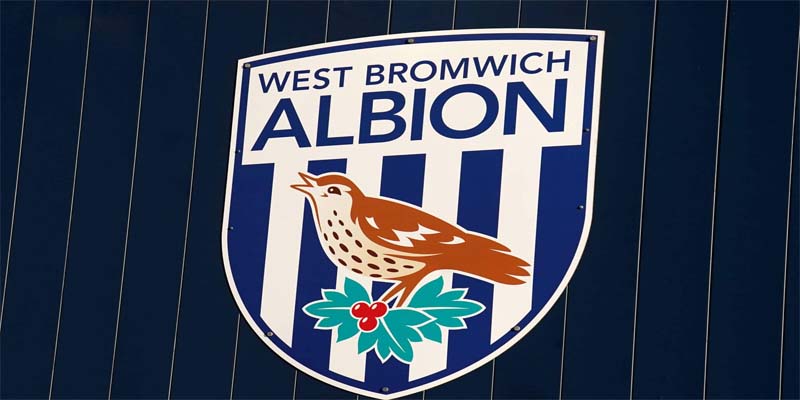West Bromwich Albion FC, often simply referred to as West Brom, holds a distinguished place in the annals of English football. With its rich history, passionate fanbase, and noteworthy achievements, the club has carved out a significant identity within both the local community and the broader landscape of the sport. In this blog post, we will delve deep into the journey of West Bromwich Albion FC, exploring its origins, rise to prominence, key achievements, modern-day challenges, and the vibrant culture surrounding in nhà cái FUN88
Introduction to West Bromwich Albion FC
West Bromwich Albion FC, founded in 1878, is one of the oldest football clubs in England. The club has a storied history characterized by triumphs, tribulations, and a deep connection with its supporters. Situated in the West Midlands, Albion’s home ground, The Hawthorns, is known for its electrifying atmosphere and loyal fanbase.
The journey of West Bromwich Albion FC reflects not just the evolution of a football team but also the societal changes around it. From its inception during the early days of organized football to its participation in the modern Premier League, the club has witnessed and adapted to the ever-changing landscape of English football. Each chapter in its history speaks volumes about the passion and commitment that have propelled the club forward.
History and Origins of the Club
To understand the essence of West Bromwich Albion FC, one must first look back at its origins. The club was formed by workers from the nearby metalworking industry. Initially known as West Bromwich Strollers, the team played its first match in 1879. The name changed to Albion in 1880 when the team joined the Football Association.
This period marked the beginning of a long-standing tradition of competitive football in the region. The club quickly became known for its attacking style of play and dedication to sporting excellence. Notably, West Brom was one of the founding members of the Football League in 1888, which further solidified its status in English football.
Evolution of the Club Over the Years
The transformation of West Bromwich Albion FC has been nothing short of remarkable. Throughout the late 19th and early 20th centuries, the club experienced numerous ups and downs, showcasing resilience amidst adversity.
In the 1920s and 30s, West Brom established itself as a formidable force in English football, winning multiple FA Cups and participating in high-stakes matches that captivated fans. By the mid-20th century, however, the club faced challenges, struggling to maintain its position in the top division. Yet, it was during this time that the club’s loyal fanbase proved invaluable, providing unwavering support through thick and thin.
As the decades rolled on, West Brom underwent several managerial changes, each bringing a new vision and approach to the club. This evolution saw the introduction of various playing styles, tactical innovations, and a renewed focus on youth development. The commitment to nurturing homegrown talent became a hallmark of the club, contributing to its rich legacy.
Achievements and Legacy of West Bromwich Albion FC
When examining the legacy of West Bromwich Albion FC, one cannot overlook the remarkable achievements that have defined the club’s history. From major trophies to influential figures, West Brom has made its mark on English football.
Key Achievements in Football
West Bromwich Albion FC boasts a commendable trophy cabinet filled with accolades that reflect its historical significance in the sport. The club clinched its first FA Cup title in 1888 and went on to win the prestigious competition multiple times. These victories are a testament to the determination and skill of the players who donned the club’s colors throughout the years.
In addition to its FA Cup successes, Albion achieved notable milestones in league football. The club won its first league title in 1919 and has since enjoyed spells in both the top tier and lower divisions of English football. The club’s victory in the 1968 FA Cup final remains etched in the memories of fans, as it represented a pinnacle moment in the club’s rich history.
Famous Players and Managers
A club’s identity is often shaped by the exceptional individuals associated with it. West Bromwich Albion FC has produced some legendary players whose contributions transcended the game. Names such as Jeff Astle, an iconic striker known for his goal-scoring prowess, and Bryan Robson, a midfield maestro, resonate deeply with supporters.
Moreover, the management philosophies of coaches like Ron Atkinson and Gary Megson have left an indelible impact on the club. Their strategies and leadership not only brought success on the pitch but also instilled a sense of pride and unity among players and fans alike. The importance of strong leadership cannot be understated; it plays a crucial role in fostering a winning mentality and guiding teams through challenging periods.
The Club’s Role in English Football History
West Bromwich Albion FC’s role in shaping English football cannot be underestimated. As one of the founding members of the Football League, the club contributed to the establishment of modern football as we know it today. Through its participation in pivotal moments, the club has been an integral part of the narrative that defines the sport.
The club’s commitment to innovation in tactics and player development has paved the way for future generations of footballers. West Brom has historically embraced progressive ideas, always looking to evolve and adapt to the dynamic nature of football. This legacy continues to inspire clubs across the country, serving as a reminder of the powerful influence that one institution can have on the broader footballing landscape.
Conclusion
In conclusion, the journey of West Bromwich Albion FC is a captivating tale woven with triumphs, trials, and an unwavering connection to its roots. From humble beginnings to a prominent position in English football, the club’s history is rich and layered.


